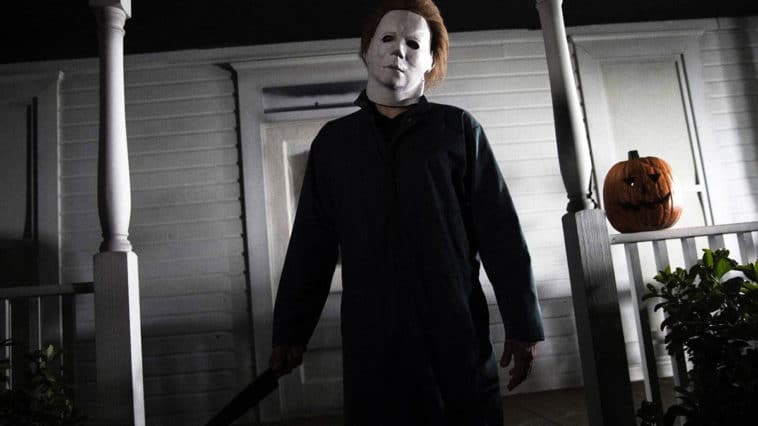It’s easy to write off the 1970s as a haze of disco, shag carpets, and questionable fashion. But in cinema, it was no less of a revolution. This was the “New Hollywood” era, a time when hard-hitting, character-driven, and ambitious stories, led by visionary directors, changed the game forever. It was also the decade that gave birth to the modern blockbuster.
Some movies from that time feel like relics, trapped in amber. But others? They feel just as electric, relevant, and masterful today as they did when they first hit the silver screen. Whether you saw them in the theater with a bucket of popcorn or just discovered them on streaming, these films are timeless.
To that effect, here are 10 movies from the 1970s that absolutely, 100% still hold up.
The Godfather (1972)

Francis Ford Coppola’s mafia movie is the definitive story of family, power, immigration, and the corrosion of a man’s soul. It’s basically Shakespeare with cannolis.
Why it holds up: Two words: Gordon Willis. The cinematography, with its rich shadows, is so influential that entire seasons of modern prestige TV (like Ozark or Succession) are still trying to capture its look. Every single performance, from Marlon Brando’s iconic Don Corleone to Al Pacino’s chilling transformation as Michael, is a masterclass. It’s a slow-burning epic that earns every single one of its 175 minutes.
Star Wars (1977)
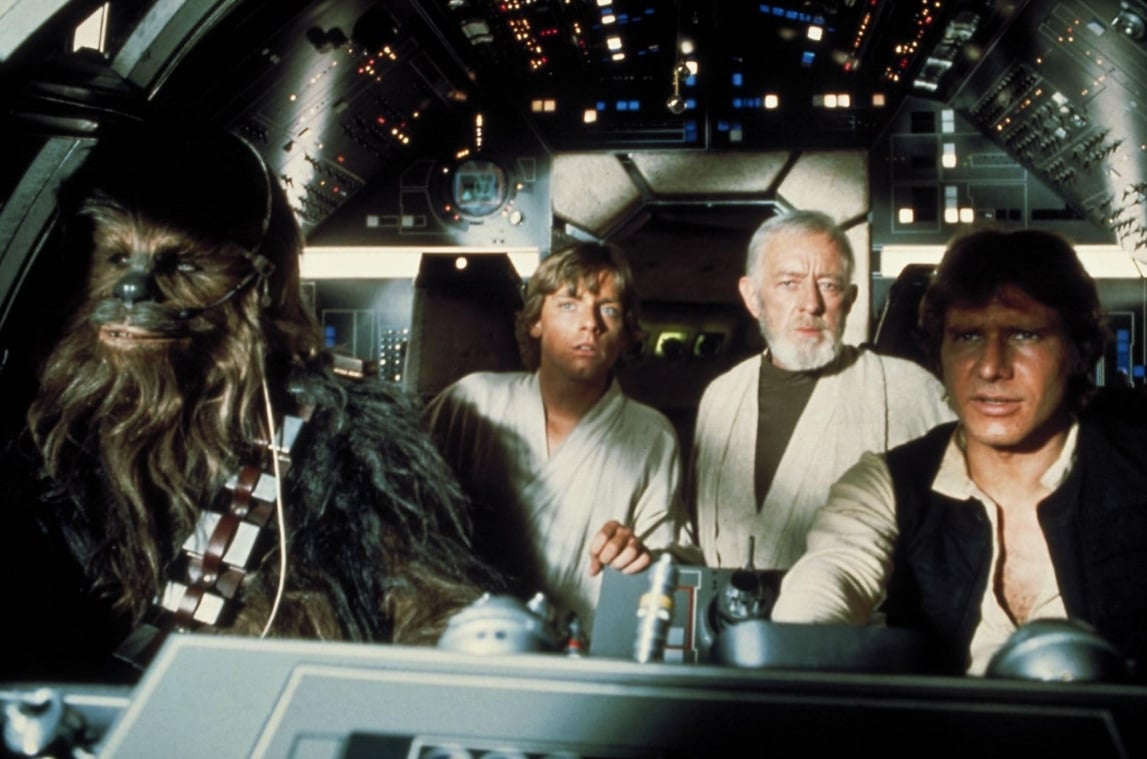
You might know it as Star Wars: Episode IV – A New Hope, but in 1977, George Lucas’s space opera was just Star Wars. It was a bolt from the blue that combined samurai films, westerns, and old-school sci-fi serials into something entirely new.
Why it holds up: Aside from being a masterpiece of cinema, a key reason is the film’s introduction of the “used future” trope. Unlike the sterile, clean sci-fi that came before, the Millennium Falcon was a “piece of junk.” The droids were dented and dirty. This tactile, lived-in world-building, combined with John Williams’ soaring score and timeless “hero’s journey” myth, makes it infinitely rewatchable. The practical effects and model work still feel more real than a lot of modern CGI.
Alien (1979)
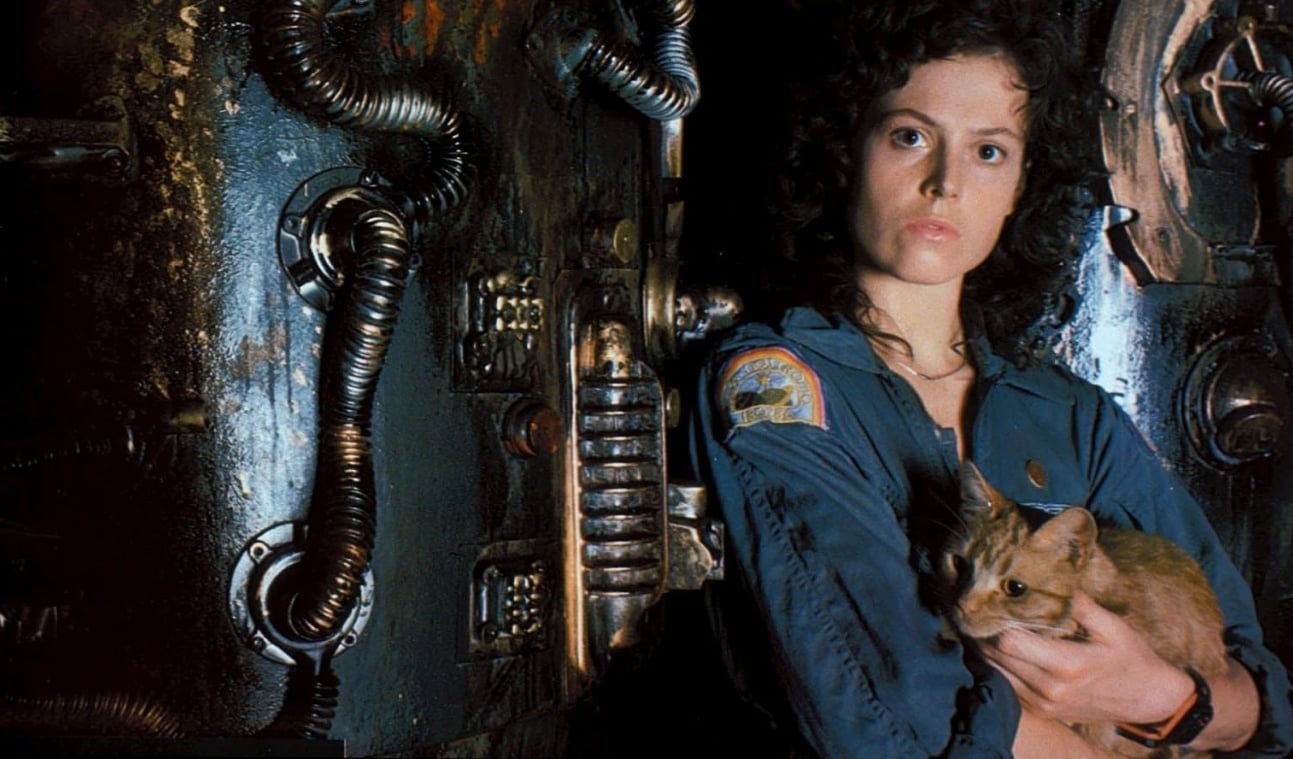
Ridley Scott’s chef d’oeuvre is a perfect fusion of sci-fi and horror. The pitch? “Jaws in space” and the result is a claustrophobic, nerve-shredding nightmare.
Why it holds up: The film takes its time, building atmosphere and letting you get to know the “truckers in space” crew of the Nostromo. H.R. Giger’s biomechanical design for the Xenomorph is still one of the most terrifying and original creature designs in film history. And then there’s Sigourney Weaver’s Ellen Ripley. She wasn’t a “female action hero”; she was just the most competent person on the ship, inadvertently creating the blueprint for decades of protagonists to come.
Rocky (1976)
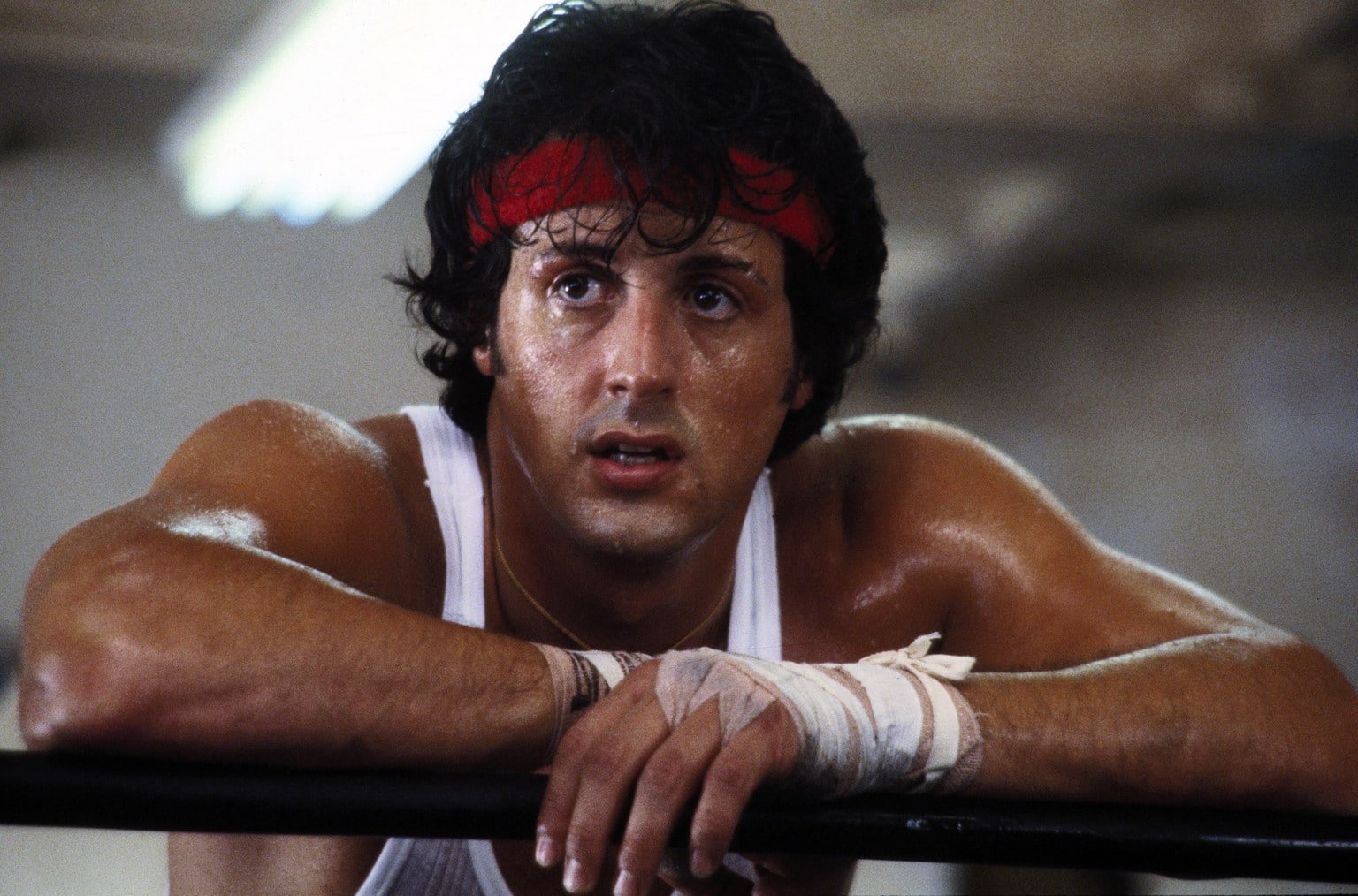
A small-time Philadelphia club fighter, a “bum” who works as a collector for a loan shark, gets a one-in-a-million shot at the world heavyweight title.
Why it holds up: Far from limiting itself to being identified as a boxing movie, Rocky is a gritty, romantic, 1970s character drama that happens to end with one of the greatest fights in film history. Sylvester Stallone’s Oscar-nominated script is all heart.
The painfully tender romance between Rocky and the shy Adrian (Talia Shire) is the film’s true core. It’s a grounded story about a man who just wants to prove he’s not a nobody. And that training montage? Set to Bill Conti’s “Gonna Fly Now,” it’s pure cinematic adrenaline that will still make you want to run up the nearest flight of stairs.
Jaws (1975)
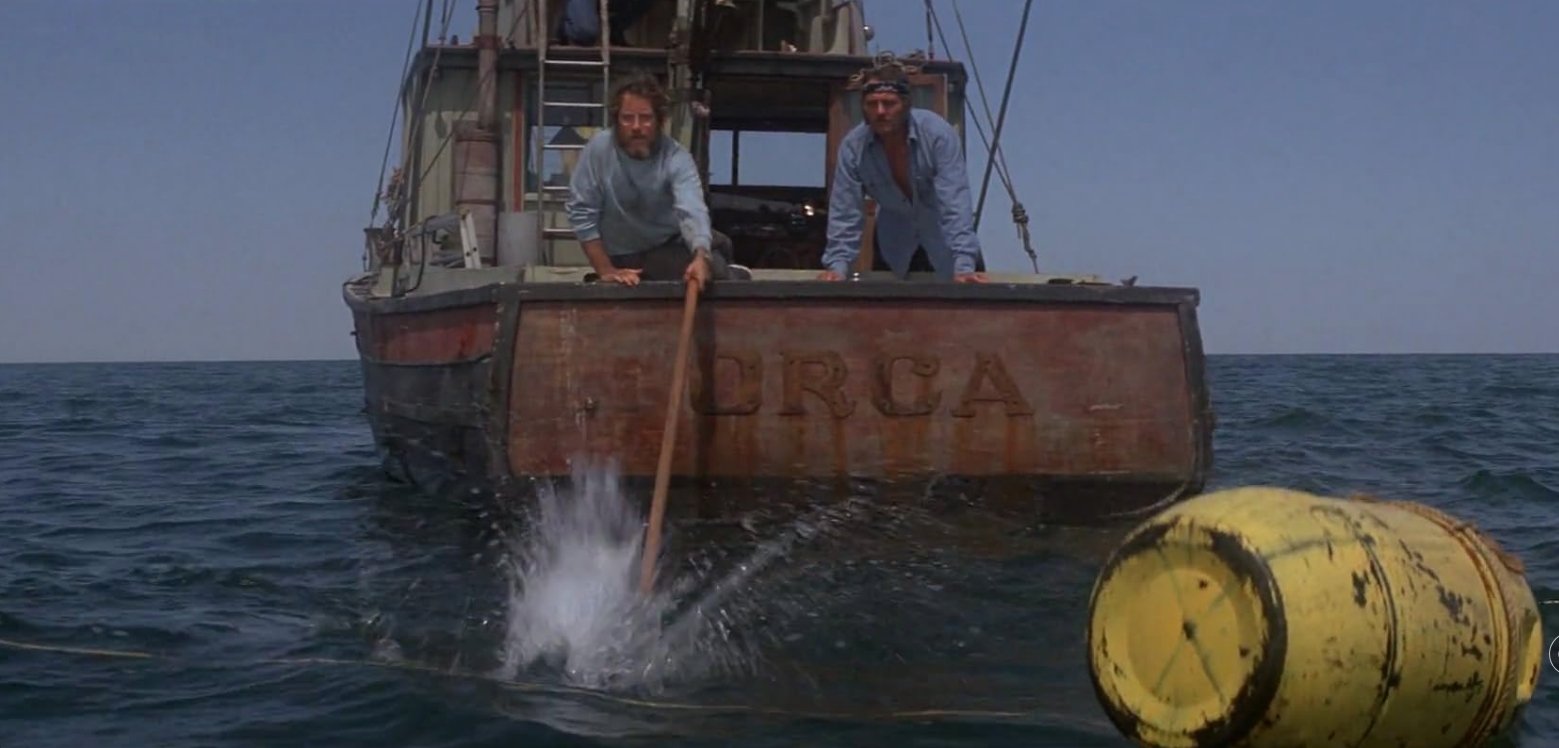
A small island town is terrorized by a great white shark, and it’s up to the police chief, a marine biologist, and a salty old seadog to stop it. Steven Spielberg went about to create a scary movie and ended up inventing a summer blockbuster instead.
Why it holds up: The shark didn’t work. That mechanical failure was the best thing that could have happened. It forced Spielberg to imply the shark’s presence using tension, those iconic yellow barrels, and John Williams’ two-note theme. The movie is a perfect machine of suspense, and the chemistry between the three leads—Roy Scheider, Richard Dreyfuss, and Robert Shaw—is pure, unscripted gold.
Taxi Driver (1976)
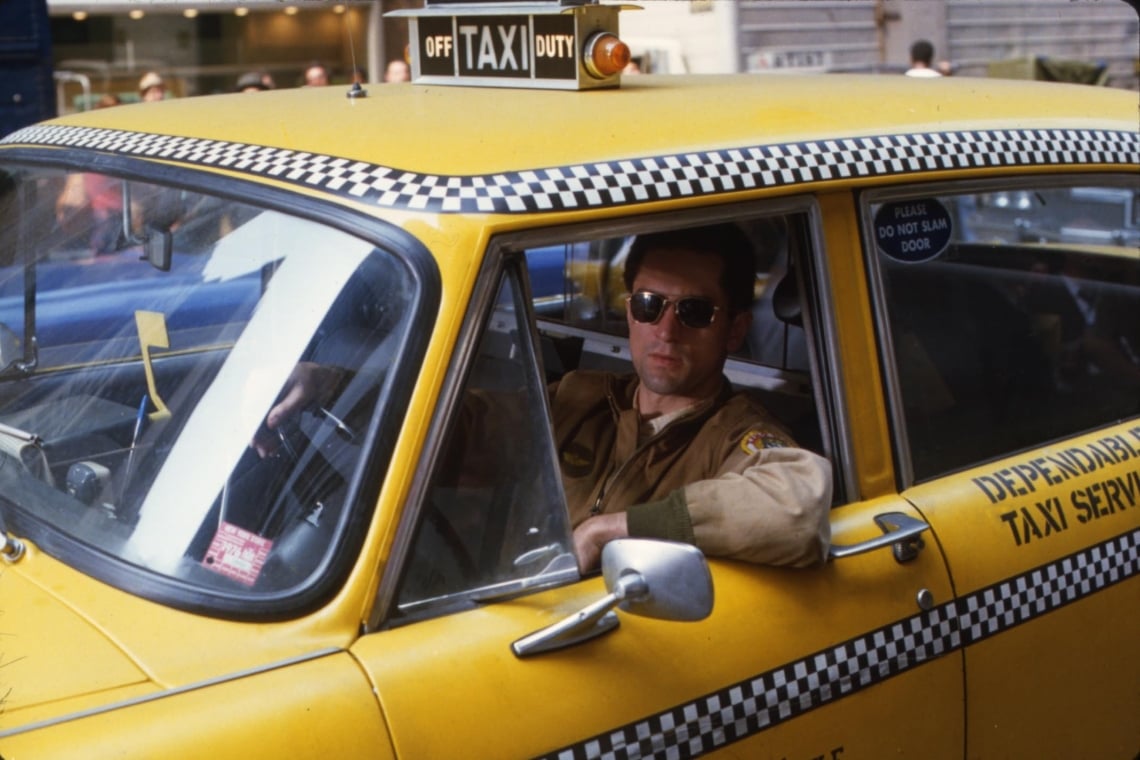
Martin Scorsese’s gritty, hypnotic character study follows Travis Bickle, a lonely, insomniac Vietnam vet who drives a cab through the decaying streets of New York City, his sanity slowly unraveling.
Why it holds up: The themes of profound urban loneliness, alienation, and the desperate desire to be seen are timeless. In the 70s, Travis Bickle wrote in a diary; today, he’d have a podcast or a toxic social media feed. Robert De Niro’s all-consuming performance, Bernard Herrmann’s haunting jazz score, and Scorsese’s implacable direction make it feel just as dangerous and immediate as it did half a century ago.
Chinatown (1974)

Private eye J.J. Gittes (Jack Nicholson) is hired for a seemingly simple infidelity case in 1930s Los Angeles, only to be pulled into a dark, complex web of murder, incest, and corruption over one thing: water.
Why it holds up: Robert Towne’s screenplay is widely considered one of the most perfect scripts ever written. It’s an intricate mystery that unfolds with flawless precision. But the real kicker is its bleak, cynical ending. It’s a gut-punch that rejects the “good guy wins” formula, reminding us that, more often than not, the rich and powerful get away with it. That’s a theme that never goes out of style.
Halloween (1978)

On Halloween night, a silent, masked killer escapes a mental institution and returns to his hometown to stalk a group of babysitters—a simple, low-budget premise that allowed John Carpenter to codify the slasher genre.
Why it holds up: Simplicity is terrifying. Michael Myers isn’t a wisecracking demon; he’s “The Shape.” He’s just… evil. He walks, he doesn’t run. Carpenter’s masterful use of the Steadicam (creating that floating, voyeuristic POV) and his own iconic, minimalist synth score created a blueprint of suspense that is still being copied (but rarely bettered) today.
One Flew Over the Cuckoo’s Nest (1975)

To escape a prison sentence, charming rogue R.P. McMurphy (Jack Nicholson) pleads insanity and is sent to a mental institution. There, he wages a war of wills against the cold, tyrannical Nurse Ratched.
Why it holds up: This is the ultimate anti-authoritarian story. The central conflict—the free, chaotic human spirit versus the cold, oppressive system—is universal. Louise Fletcher’s Nurse Ratched is one of the all-time great screen villains precisely because she believes she’s doing the right thing. The film swept the “Big Five” Oscars (Picture, Director, Actor, Actress, Screenplay) and its ensemble cast (including a young Danny DeVito and Christopher Lloyd) is simply unforgettable.
Superman (1978)
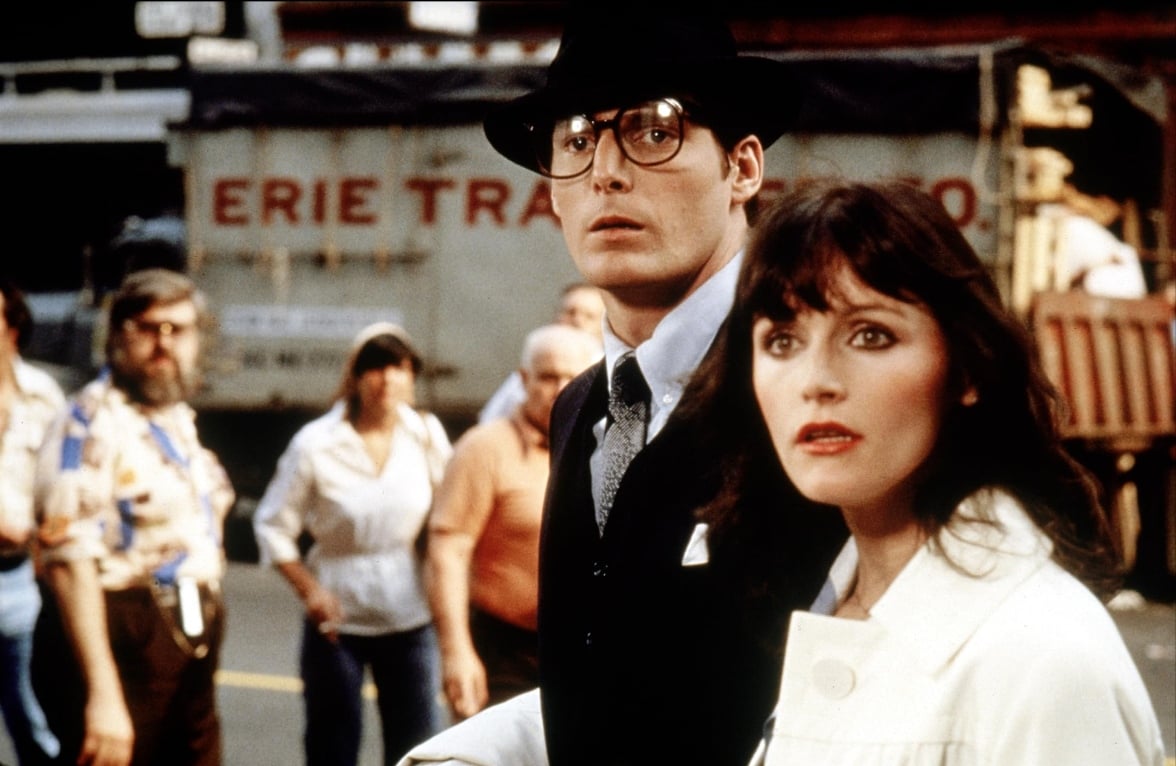
Before Superman, screen superheroes were campy kids’ stuff. Director Richard Donner’s radical decision was to treat the source material with absolute sincerity, making a promise so audacious it became the film’s tagline: You’ll believe a man can fly.
Why it holds up: Its heart. While some of the effects are a product of their time, the movie’s magic is fully intact. The key is Christopher Reeve. He made you believe in two different people: his clumsy, endearing Clark Kent and his majestic, earnest Superman. In an age of dark, brooding heroes, this film’s unironic optimism and John Williams’ heroic score are a blast of pure, cinematic joy. It’s the blueprint for most great comic book movies that followed.

